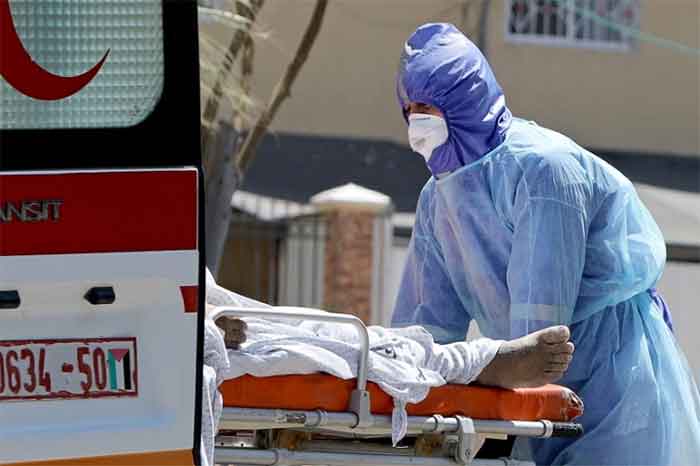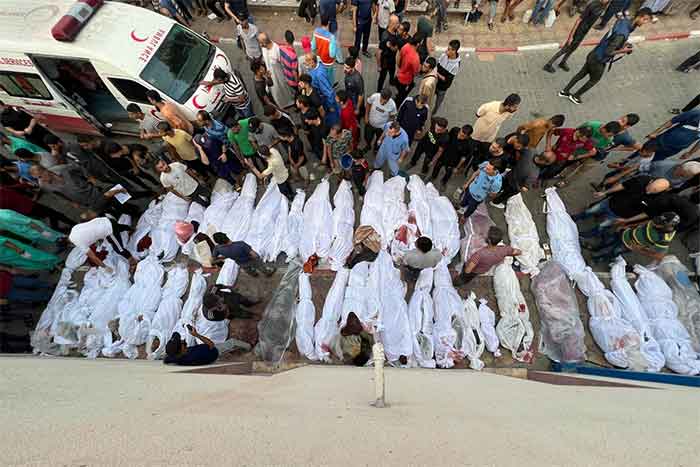
Members of the Jan Swasthya Abhiyaan have joined the Socialist Party of India and other civil society organizations in calling for the nationalization of all health infrastructure and all medical education services and infrastructure in the country, without any delay. In a press release, Socialist Party (India) said nationalization was necessitated by the “acute national emergency threatening public health and social security”.
In 2018, the Allahabad High Court had ruled that all receiving salaries from the government and their family members should get themselves treated at government healthcare facilities. The implementation of that order will go a long way in making the government system of healthcare more robust, the Socialist Party said in its statement. In 2013, however, the government had decided that bureaucrats seeking treatment for complex diseases abroad would get reimbursed; even airfare would be borne by the government. No details of the amount spent in such reimbursement could be accessed online, even though there is mention that an average, no-frills bed in a New York city hospital would cost about Rs2 lakh per day. This is clearly exorbitant, when one considers that per capita health expenditure is less than Rs300. (2018 figure)
In a single day this month, India had recorded over three lakh cases of novel coronavirus infection, even as hospitals in many cities faced acute shortage of oxygen and ICU beds. There was a threat to even law and order, as tankers carrying oxygen were looted en route.
Black marketeering was rampant, as people were forced to pay exorbitant sums for oxygen cylinders, life-saving medicines, ICU beds and even hearse vans to carry bodies to cremation grounds. The average cost of cremation too spiked by about 10 times, from Rs3000 to Rs30,000 in the national capital, as the numbers of bodies handled by crematoriums rose suddenly.
In its press release, the Socialist Party notes that the government had earlier fixed a ceiling price of Rs4,500 for the RT-PCR; in recent months, the cost of the test has reduced to Rs600. “People of the country need an explanation: Why did the government allow private sector to charge Rs4,500 earlier?” the release asks.
The press release also questions why Covishield, produced in India by Serum Institute of India, should be sold to the private hospitals in the country at Rs600, the highest cost in the world. “Should not the government regulate these greedy vaccine manufacturers so that they are not able to reap unlimited profits?” the press release asked, adding that the government must take over these units and nationalize them.
Vaccines, medicines, diagnosis and medical care must all be available free of cost to every citizen, and the quality of these facilities should be the same for all. The cost of medical care cannot be allowed to push people into poverty, the Socialist Party states in its release. “Ending privatization and protecting public health, public water, public education, public transport and other public services, along with ensuring social security for everyone, are among the most important human needs today,” the release stated. The release pointed out that Spain had recently nationalized its healthcare services. There are about 30 countries – including Canada, UK, Brazil, South Africa, Cuba and Sri Lanka that have long had a government-funded healthcare system.
The Socialist Party demands that all corporate hospitals be taken over by the government, while allowing community-run and charitable hospitals to function autonomously. Government must also increase the number of healthcare workers, and ensure that these workers too are protected by labour laws and offered rights, fair wages and entitlements. Those who have already paid exorbitantly for services at the time of the coronavirus pandemic should be reimbursed. Rural government health infrastructure must be improved, instead of allowing private services to flourish. Serum Institute and Bharat Biotech must reimburse the government the amount that they have charged over and above the reasonable sum. VIP culture must end; patients must be allowed equal access to services.
Dr Narendra Gupta of the Jan Swasthya Abhiyan said, “Not just healthcare infrastructure, but even medical education infrastructure and services must be nationalized.” National Institute of Public Finance and Policy estimated in a study that the education sector was among the biggest generators of “black money” in India; medical education is especially expensive – in a private college, a medical degree can cost up to 10 times what it does in a government college.
Rosamma Thomas is an independent journalist
GET COUNTERCURRENTS DAILY NEWSLETTER STRAIGHT TO YOUR INBOX

















































